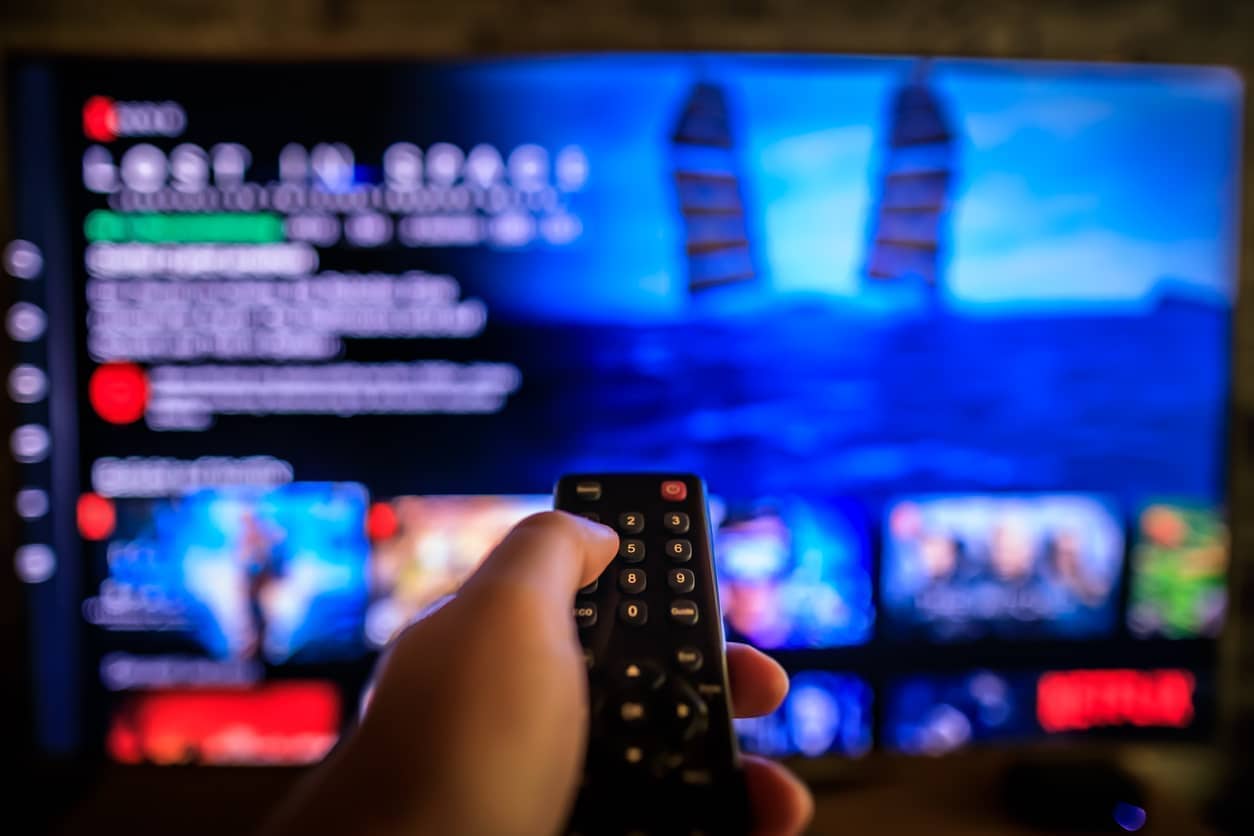From time to time, Netflix’s marketing brains like to get a bit cute with the company’s past. ‘Don’t give up on your dreams – we started with DVDs,’ read one recent viral post. But while the streaming giant happily references its most famous transition, it’s much more coy (and probably wisely) when it comes to its latest one.
It isn’t hard to see that 2022 Netflix is a very different beast to the one most of us signed up for. If you joined Netflix during its peak – e.g. somewhere in the long window between House of Cards and Tiger King – you would have likely bought into the idea of it being a one-stop shop for all things streaming. But has it really kept that promise?
Whereas Netflix once aimed to be like Spotify – an infinite vault of all the box sets and films you could possibly want – it now looks much more like a conventional broadcaster. Even worse, its once vast archive is quickly shrinking. Just this month, three of its more popular comedy series – 30 Rock, Friday Night Lights and Parks and Recreation – vanished from the service for good. So what’s going on?
The truth is that Netflix’s all-powerful model depended on maintaining a near monopoly on streaming. But what happens when other media conglomerates decide to get it on the game, and use their hefty cheque books to lure the big hitters away from Netflix? Or when the legacy players decide to launch their own streaming platforms?
The truth is that Netflix’s all-powerful model depended on maintaining a near monopoly on streaming
We’re now seeing the answers to those questions – and it isn’t good news for Netflix. 30 Rock and Parks and Recreation didn’t disappear by accident: it’s because NBC wants them back for its own streaming service, Peacock (at least in the US). Although that’s small fry compared with NBC’s last move: retaking custody of The Office.
It may have ended almost a decade ago, but the Steve Carell version of The Office remains the great white whale of the streaming world, racking up enough viewing hours to power a whole platform. In its last year on US Netflix (2020), The Office was still topping the list of most watched shows – even though its final episode had been broadcast seven years earlier. Netflix still has some of the international rights to Dunder Mifflin (including in the UK), but for how long?
It isn’t just NBC laying claim to popular titles. Whichever way you turn, Netflix is facing a fight to keep the big names it once took for granted as rival companies look to beef up their own streaming offerings. From Hulu’s golden handcuffs deal with the Kardashians, to Disney taking back control of the likes of Modern Family, How I Met Your Mother and Sons of Anarchy, the streaming world is seeing an almighty scramble for content – and Netflix is losing out.
It makes for a particularly raw deal for UK viewers given that one of the companies that still licenses a lot of its content to Netflix is the BBC. That might be great for folks living in the States, but British viewers already have the entire back catalogues of Doctor Who and Peaky Blinders on iPlayer. They’re unlikely to want to pay for them again. According to Ofcom, out of Netflix’s 1.6 billion streams in the first three months of 2022, 513 million of them were for programmes that first aired on the BBC, ITV, Channel 4 or Channel 5.
In its defence, Netflix hasn’t been standing still in recent years. While its archives have been shrinking, its executives have prioritised original content, ploughing billions of dollars into trying to make its own global franchises. It certainly has some hits on its books (just imagine how much Disney would pay for Stranger Things…) but does it necessarily add up to a killer subscription package?
Say you love The Crown, but couldn’t care for the likes of Umbrella Academy or Emily in Paris. Does it still make sense to maintain your Netflix subscription during those long waits between each season of royal intrigue? Particularly when there seems to be less content to browse every time you log on.
Some subscribers appear to think not. In Britain, Netflix’s share of the streaming market dropped from 9.4 per cent to 4.5 per cent in the latest quarter. Last week, Disney edged past Netflix to become the world’s biggest subscription TV streaming company, with 221 million subscriptions across all of its streaming services – against 220.7 million for Netflix.
And let’s not gloss over the fact that a lot of that original content really isn’t that good. Look at documentaries. This season’s big release is an exposé about Woodstock 99: the ill-fated music festival regarded as a borderline humanitarian disaster (and not just because the Insane Clown Posse played the main stage). But the whole thing has previously been the subject of an HBO documentary and a hit podcast – making Netflix look rather late to the party.
It all adds up to a tricky situation for Netflix – which is already among the worst-performing shares in the New York Stock Exchange’s S&P 500 index. As consumers look to tighten their belts ahead of a gloomy winter, more cancellations must surely be on the horizon. For Netflix executives, that sequel to Squid Game really can’t come soon enough.







Comments